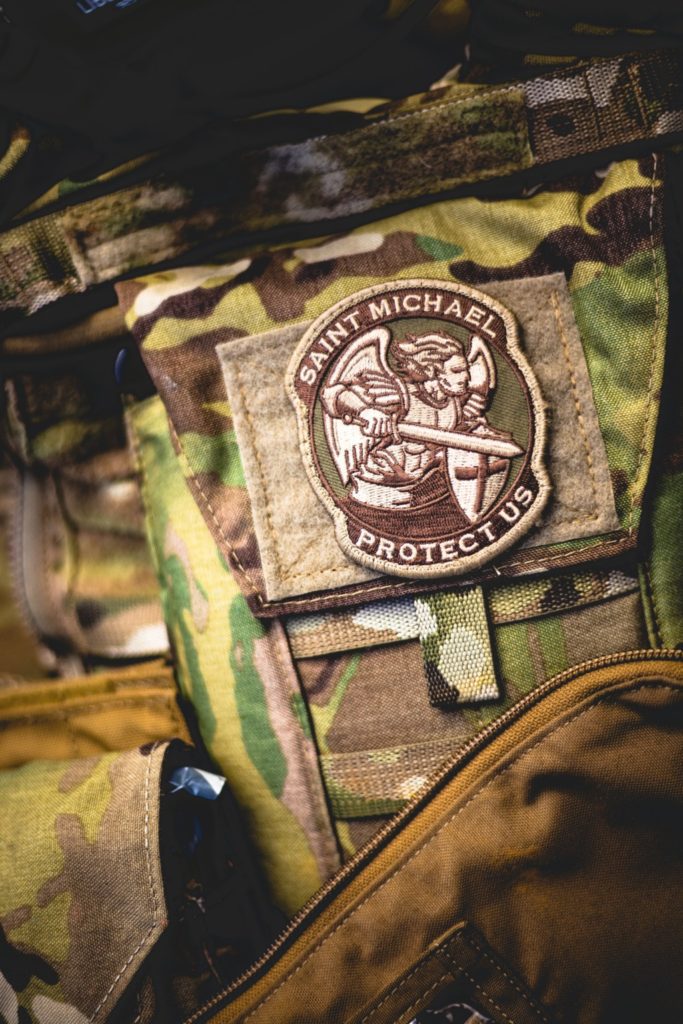 When an F-16 pilot crashed recently, it left me wondering who was left behind. Was the spouse of the pilot a friend of mine? Would she be ready and able to provide for her family after such a tragic loss? Would she be ready to come to grips with her Gold Star status?
When an F-16 pilot crashed recently, it left me wondering who was left behind. Was the spouse of the pilot a friend of mine? Would she be ready and able to provide for her family after such a tragic loss? Would she be ready to come to grips with her Gold Star status?
According to the Department of Defense Casualty Status, at least 5,421 military members were “Killed In Action” and 52,680 “Wounded In Action” during Operation Iraqi Freedom, Operation New Dawn, Operation Enduring Freedom, Operation Inherent Resolve and Operation Freedom’s Sentinel as of April 13, 2018. These numbers highlight the risk of service members in the field who are actively fighting in an operational unit. They do not appear to include training casualties like the Thunderbird crash on April 4th of this year.
The figures include all casualties from operational engagements since October 2001. This means that in nearly two decades over 58,000 families have been impacted in one way or another by tragic circumstances leaving the service member “permanently or temporarily incapable of bearing arms or continuing to fight.” It also leaves the family that service member supports uncertain about their future and alters their life indefinitely.
While I can’t imagine the many hardships that a gold star spouse faces, I must try to prepare myself for that very possible situation.
Would I be able to support my family in case of death or disability?
Like many military spouses, I put my career on hold. Due to my husband’s profession as an Air Force pilot, we are required to move often—every two to three years, in fact. Finding and keeping a job is difficult, let alone sustaining a career. When you have more than one child too young for school, a temporary or part-time job does not usually cover the cost of childcare. Even now, with all of my children in school, my husband and I have decided it’s still not the right time for me to have a full-time job. Living overseas—away from family and friends—we have no backup to take care of our children before/after school, when someone gets sick or on holidays and in the summer. If my active duty spouse is assigned a temporary or full-length deployment, it would be nearly impossible to balance the children’s school and activity schedule with my work schedule.
That said, I do plan on working someday, but what happens if that someday is sooner than I planned? As a SAHM, what am I doing to prepare myself for the future? Could I pick up the pieces and provide for our four children if the worst were to happen? If my active duty spouse were no longer capable of working due to death or disability, would I be able to provide the same amount of financial support?
The short answer is “no.” I couldn’t come close to providing for my family the same way my spouse does.
Despite financial support from insurance or death gratuity, bereavement benefits would not be able to sustain the same quality of life for my four children and myself. Moreover, any job I might find would be an entry-level or associate-level position at best, which wouldn’t come close to the same earning potential as a senior ranking officer. While single parents can do well for their families, it can be quite a shock and disadvantage for a military spouse to go from being a SAHM to becoming a successful breadwinner, especially during a time of profound grief.
Hope is not a plan, but you can, and the saying goes, “plan for the worst, and hope for the best”
PREPARE: Just as you would establish a plan in your home for emergencies like fire/tornado/earthquake, you may want to establish an emergency medical plan. Consider securing Servicemember’s Group Life Insurance (SGLI), disability/health insurance or even a larger savings account in the event of a crisis. Create a fallback budget of things you could cut out. Moreover, think about where you might live or work, if you had to suddenly.
LEARN: Utilize your time as a SAHM to develop a skill or become an expert on a topic. Earn a traditional or non-traditional (online) degree. If a degree seems out of reach, attempt some type of continuing studies or professional development workshops. The military offers a variety of resources to aide spouses with education, job searches and the hiring process.
ASSEMBLE: Assemble your resume and your support team. Even if you are not actively seeking work, keep that resume current. Work from home if possible or part-time to enhance skills and experience. Update your resume with volunteer activities and references. Maintain a good rapport with previous employers and co-workers. Follow other like-minded professionals through Linked-In. Stay connected.
NOTICE: Explore extracurricular activities and discover what you are passionate about! Notice opportunities that fill you with joy and better prepare you for a future in the career of your choosing. Volunteer your time to clubs or organizations that showcase your talents and character traits.

Although it is impossible to “plan” for a tragedy, these things might better prepare you in the event you must transition from military spouse to gold star spouse.
No one is fully prepared for the unexpected and no one should have to deal with death or disability alone, which is why the military offers emotional, financial and professional assistance for grieving families. Casualty Assistance Officers will help guide gold star spouses as they transition back to civilian life. Additional aide is continuously provided through local Family Readiness programs, Military One Source, National Military Family Association, Veteran’s Affairs, and other Department of Defense programs. Gold Star Wives, Military Families United and other surviving support groups exist to help to educate, empower, inspire and assist spouses in rebuilding their lives after tragedy.
Get to know what help is available for when you need it the most.
Hope that you never have to grieve while having to grow professionally, but PLAN for the worst in case you do.
At the beginning of a crisis, you may not be able to think clearly. Having a plan already in place will help, should your service member be unexpectedly killed in action or wounded in action. The unfortunate reality for military families is that we put our loved one’s life on the line regularly in the name of freedom.
You will want your family to be prepared if your spouse pays the ultimate price.









